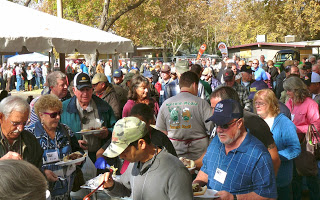WINEGRAPE ASSOCIATION NAMES NEW CHAIR
 “It is an honor for me to be elected the chair of CAWG,” said Scheid. “Since its establishment in 1974, CAWG has made a significant impact as the only statewide organization specifically focused on representing and promoting the interests of California Winegrape Growers. CAWG is the unified voice for effective state and federal advocacy and I look forward to continuing our unique role in the industry through our ongoing development of sound public policies, strengthened through membership growth.”
“It is an honor for me to be elected the chair of CAWG,” said Scheid. “Since its establishment in 1974, CAWG has made a significant impact as the only statewide organization specifically focused on representing and promoting the interests of California Winegrape Growers. CAWG is the unified voice for effective state and federal advocacy and I look forward to continuing our unique role in the industry through our ongoing development of sound public policies, strengthened through membership growth.”





















